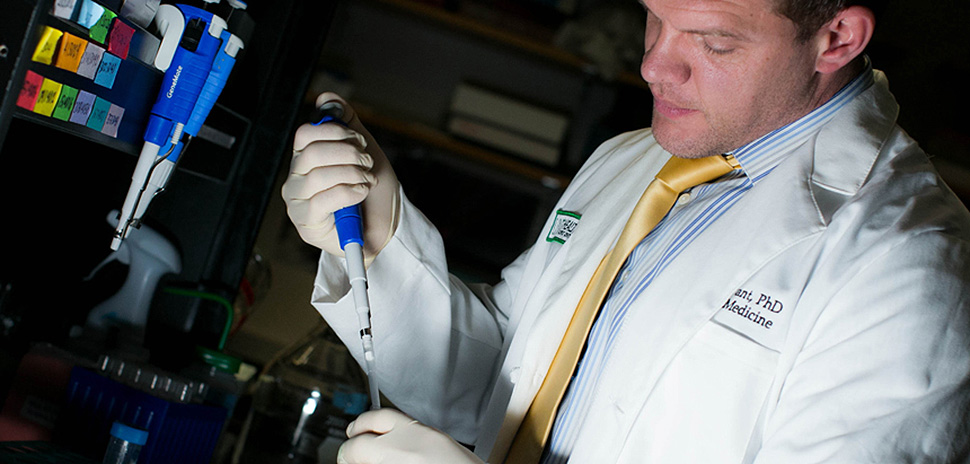UNTHSC BEGINS STUDY OF BLOOD TEST FOR ALZHEIMER’S
![]() A three-year study at the University of North Texas Health Science Center in Fort Worth will examine the viability of a simple blood test to detect Alzheimer’s disease.
A three-year study at the University of North Texas Health Science Center in Fort Worth will examine the viability of a simple blood test to detect Alzheimer’s disease.
It’s the first study of the blood test that could be a game changer in the diagnosis of early Alzheimer’s, according to UNTHSC. It’s funded with a $6.5 million grant from the National Institute on Aging.
Should the test prove successful, it would be possible to identify patients earlier, easier, and at a lower cost than any method that exists today, Sid O’Bryant, UNTHSC professor of pharmacology and neuroscience, said in a release. The test could be given at a family doctor’s office.
“Using this simple blood test, primary care doctors will be able to tell if someone has early Alzheimer’s,” he said. “Nobody anywhere on the globe has a test that can do that now.”
Find out more about the study here in Jan Jarvis’ report.

Plant pathologist Junqi Song is researching how a “knock-in” gene editing approach might result in better disease resistance without causing physical harm to the plants.[Image courtesy of Texas A&M AgriLife Research and Extension Center]
AGRILIFE RESEARCHER’S WORK USES GENE EDITING FOR PLANT DISEASE RESISTANCE
A researcher at the Texas A&M AgriLife Research and Extension Center at Dallas is examining whether a novel gene editing approach could unlock the door to broad-spectrum disease resistance in some staple food crops.
Junqi Song, a plant pathologist, is looking at how a “knock-in” gene editing approach might result in better disease resistance without causing physical harm to the plants.
“Most successes with broad-spectrum disease resistance so far have resulted from knockout gene editing, where certain genes are switched off to cause desired behaviors in a subject plant,” Song said in a release. “But successes from knockout editing come at a cost to many other aspects of the plant’s physical health and other characteristics.”
In his research, Song’s team is focusing on addressing late blight disease in tomato and potato. The Texas-grown crops are part of a nearly $6 billion national production value, according to U.S. Department of Agriculture data.
You can find out more about his research in Gabe Saldana’s report here.
UTA RESEARCHERS TACKLE HOW TO OPTIMIZE NATIONAL ELECTRIC GRID
A researcher at the University of Texas at Arlington believes he can find a way to overcome mathematical and physical barriers to optimize the national power grid making it more efficient, reliable, and secure.
Ramtin Madani, an assistant professor in the university’s Electrical Engineering Department, was awarded a $325,000 grant from the National Science Foundation to develop what UTA called “massively scalable computational methods for power scheduling.” Co-principal investigator on the research is Ali Davoudi, an associate professor in the department.
“Optimization will reduce the cost of producing power. If done correctly, it will save billions of dollars annually, which is why it is so important to find a solution,” Madani said in a release.
Academia and industry have shifted their efforts toward software modernizations in recent years, after decades in which upgrades did not occur because expense and on-going debates between the two sides, according to UTA.
Scalablity is the biggest challenge to optimization because it is difficult to find a system to route power, find the proper on/off switches, and figure out which generators should operate the following day, in the most efficient way possible — even in the smallest of electric grids.
The number of possible solutions for any specific problem outnumbers current computational power, the university said.
The UTA researchers will cast the problems in a common math language called optimization theory, which lets them examine all of the problems from a common standpoint.
Find out more about the research here.
READ NEXT
Discovery: UTSW Realizes Brain Receptor Structure, UTA’s Patented New Tech Aids Disabled
![]()






























